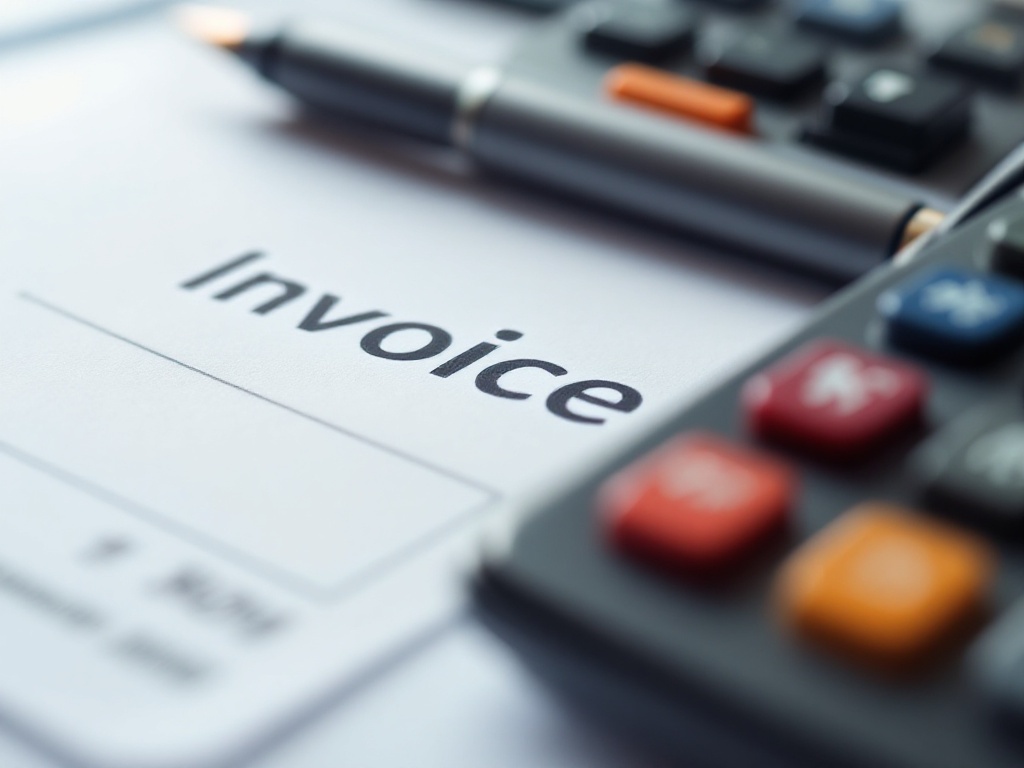To uncover your perfect invoice factoring method, you’ll need to evaluate your business’s specific needs and comprehend the different types of factoring available.
Whether you choose recourse factoring, which often comes with lower fees but entails repurchasing unpaid invoices, or non-recourse factoring for enhanced security at a higher cost, the decision hinges on your risk management and cash flow requirements.
Spot factoring could also be an option if you’re seeking a swift cash flow boost by factoring only select invoices. It is crucial to assess the volume of invoices, the creditworthiness of your customers, and your overall cash flow cycle to arrive at an informed decision.
Exploring various service providers and comparing fees can direct you to the most appropriate factoring partner, tailored to propel your business forward.
Understanding Invoice Factoring Basics
Invoice factoring can greatly streamline your cash flow management. When you’re facing delays in payments from customers, your business’s liquidity isn’t just compromised—it’s often stalled. By selling your invoices to a factor, you can receive most of the invoice’s value upfront.
This infusion of cash ensures you’re not left waiting for payment, allowing you to cover operational costs, invest in growth, or handle emergencies without dipping into reserves.
You’re essentially converting sales on credit into immediate cash flow. The process involves a third party, known as the factor, who takes on the responsibility of collecting the debt from your customer. In return, they’ll charge a fee for this service. It’s a simple exchange: you get quicker access to the money you’re owed, and the factor profits from the fees collected.
This method not only alleviates financial pressure but also saves you time and resources that would otherwise be spent on chasing payments.
You can focus on what you do best—running your business—while the factor worries about the receivables. It’s a strategic move that can fortify your financial position, especially in sectors where payment delays are frequent.
Types of Invoice Factoring

Turning now to the various kinds of invoice factoring, you’ll find that businesses can choose from several options, each tailored to different needs and situations.
The first type, recourse factoring, is common and entails a lower fee. Here, you’re responsible for buying back any invoices that your customers don’t pay. It’s a good fit if you’re confident in your customers’ ability to pay on time.
On the other hand, non-recourse factoring offers you more security. In this arrangement, the factoring company assumes the risk of non-payment. Naturally, this added security comes with higher fees, but it might be worth it if you’re dealing with unpredictable customers.
Then there’s spot factoring, where you can choose specific invoices to factor rather than committing a full ledger. This option offers flexibility and is ideal if you only occasionally need cash flow boosts.
Lastly, some companies offer hybrid models that combine features of both recourse and non-recourse factoring. These can provide a balance between cost and risk management, allowing you to customize the service to your precise business dynamics. Each type has its merits, so consider what aligns best with your operational framework and risk appetite.
Evaluating Your Business Needs
Before selecting an invoice factoring approach, carefully assess your business’s specific needs. You’ve got to think about the volume of invoices you’re managing.
Are you dealing with a high volume of smaller invoices, or fewer, larger invoices? This could significantly impact the type of factoring that suits you best.
Next, ponder the creditworthiness of your customers. Factoring isn’t just about your financial stability; it’s also about the reliability of the companies that owe you money. If your clients have a history of late payments, some factoring options might be more advantageous than others.
Evaluate your cash flow requirements as well. How quickly do you need the funds? Some factoring services offer immediate cash advances, while others might have a processing delay. Understanding your cash flow cycle is essential in selecting the most effective factoring method.
Also, take into account the administrative burden. Some factoring methods require more management than others. If you’re running a lean operation, you might prefer a service that handles most of the administrative tasks related to your accounts receivables.
Selecting the Right Factoring Company

After evaluating your business needs, the next step is to choose the right factoring company to partner with. This decision is critical as it impacts your cash flow and financial stability. You’ll want to take into account several key elements to make sure you’re making the best choice.
Firstly, look into the company’s reputation. A reputable factoring company should have solid testimonials and reviews that reflect reliability and excellent service. Don’t shy away from asking for references or case studies.
Secondly, assess their industry experience. It’s beneficial to work with a factor that understands your sector’s specific challenges and norms. Their experience can provide tailored solutions and quicker turnaround times, which can be crucial for your operations.
Thirdly, customer service is paramount. You need a factoring company that’s responsive and communicative. They should be easy to contact and willing to explain the process clearly, helping you navigate any issues that arise.
Finally, take into account the flexibility of their contracts. Some factors offer more adaptable terms than others. Look for a partner that can adjust to your business’s changing needs without locking you into restrictive conditions.
Choosing the right factoring company is about finding a partner that aligns with your business values and operational needs.
Managing Factoring Costs and Rates
Understanding the costs and rates associated with invoice factoring is vital for managing your business finances effectively. When you’re contemplating factoring as a funding option, you’ll encounter various charges such as service fees, interest rates, or discount rates, which can all impact the overall cost.
Service fees can vary significantly depending on the factoring company and the volume of invoices you process. They typically cover administration and account management duties. You must understand these fees upfront to avoid any surprises.
Interest rates or discount rates are applied to the amount the factor advances to you. These rates are influenced by the volume and risk associated with your invoices. Higher-risk clients or industries generally attract higher rates. Comparing these rates among different factors is a necessity to make sure you’re getting a competitive deal.
Also, be cautious of any additional fees like termination fees or penalty charges for early contract exit. Always read the fine print in your contract carefully.
Optimizing Cash Flow With Factoring

Improving your cash flow through invoice factoring can significantly enhance your business’s liquidity. By selling your invoices to a factoring company, you’re not just injecting immediate cash into your operations; you’re also smoothing out the financial bumps that slow payment terms can create.
This method lets you focus on growing your business rather than chasing down payments.
When you opt to factor your invoices, you’re essentially using your accounts receivable to secure upfront cash. This means you don’t have to wait for clients to pay within their 30, 60, or even 90-day payment terms. Instead, you can reinvest that immediate capital back into your business.
It could be for replenishing inventory, funding new projects, or covering operational costs. These are vital for maintaining a steady flow in your business cycle.
Furthermore, factoring companies often manage collections on your behalf, which saves you the time and hassle of having to follow up on payments. This aspect of factoring not only improves your cash flow but also reduces administrative burdens, allowing you to focus more on strategic growth and less on financial intricacies.
Remember, the key to maximizing the benefits of factoring lies in selecting a reputable partner and understanding the terms clearly.
Frequently Asked Questions
Can Invoice Factoring Impact Customer Relationships Negatively?
Yes, invoice factoring can negatively impact your customer relationships if not handled delicately. It might make customers feel you’re in financial trouble or that they’re being dealt with by impersonal third parties.
Are There Industries Where Invoice Factoring Is More Common?
Yes, invoice factoring is more common in industries like manufacturing, transportation, and staffing where businesses often face long payment cycles and need quick access to cash to manage operations and growth effectively.
How Quickly Can I Access Funds After Approval?
Once approved for invoice factoring, you’ll typically access funds within 24 to 48 hours. This quick turnaround helps manage cash flow efficiently, especially in urgent financial situations.
Is Personal Credit Score Relevant in Invoice Factoring?
Your personal credit score isn’t usually important for invoice factoring, as lenders focus more on your clients’ creditworthiness. However, a good score can still positively influence terms and approval rates.
What Happens if My Client Disputes a Factored Invoice?
If your client disputes a factored invoice, you’ll need to address the issue directly with them. The factoring company might also require you to resolve the dispute to proceed with the financing arrangement.
What Do You Do Now
Now you’ve explored the essentials of invoice factoring, it’s time to tailor it to your business. Assess your needs, choose the right factoring company, and manage the costs effectively.
By optimizing your cash flow through factoring, you’ll keep your business running smoothly and efficiently. Remember, the best approach is one that aligns perfectly with your financial strategies.
Start leveraging the power of invoice factoring today and watch your business grow with newfound financial stability.
Contact Us Here or Call Us at 01243-767121 for more details.
Have any questions or concerns? Reach out to us here – we’re here to help and excited to support you!



